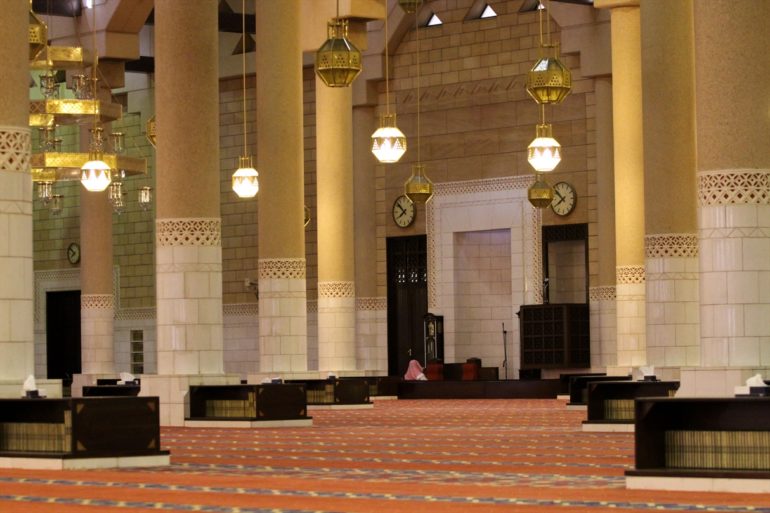
Saudi Arabia has pledged to monitor preachers and jurists’ use of Prophet Muhammad’s hadiths (sayings) “to prevent them being used to justify violence or extremism”.
Saudi’s King Salman has ordered an international council of senior Islamic scholars to scrutinise the hadiths.
The Saudi Culture and Information Ministry promised on Tuesday (17 October) to “eliminate fake and extremist texts and any texts that contradict the teachings of Islam and justify the committing of rimes, murders and terrorist acts”.
Saudi Arabia, the birthplace of Islam, has for decades promoted and exported Wahhabism, a conservative interpretation of Islam, and has played a major role in the growth of radical Islam, according to Paul Marshall, a religious freedom professor in the US.
Pope calls on religions to ‘pursue peace’
Reports by Human Rights Watch recently accused some Saudi religious scholars and clerics of using language that discriminates against and demonises religious minorities.
The rights group also said Saudi schoolbooks contain “hateful and incendiary language” towards other Islamic traditions than Sunni Islam, and severe criticism of Jews, Christians and people of other faiths.
The Saudi pledge came as Pope Francis yesterday (18 October) called on all religious leaders to pursue peace.
Pope Francis told delegates at the Vatican’s World Conference of Religions for Peace that “whoever commits violence or justifies it in the name of religion severely offends God”.
“The religions, with their spiritual and moral resources, have a specific and unique role to play in building peace. They cannot be neutral, much less ambiguous, where peace is concerned,” he said.
“There is a need for a common and cooperative effort on the part of the religions in promoting an integral ecology that includes promoting respect for human dignity and care for creation.”